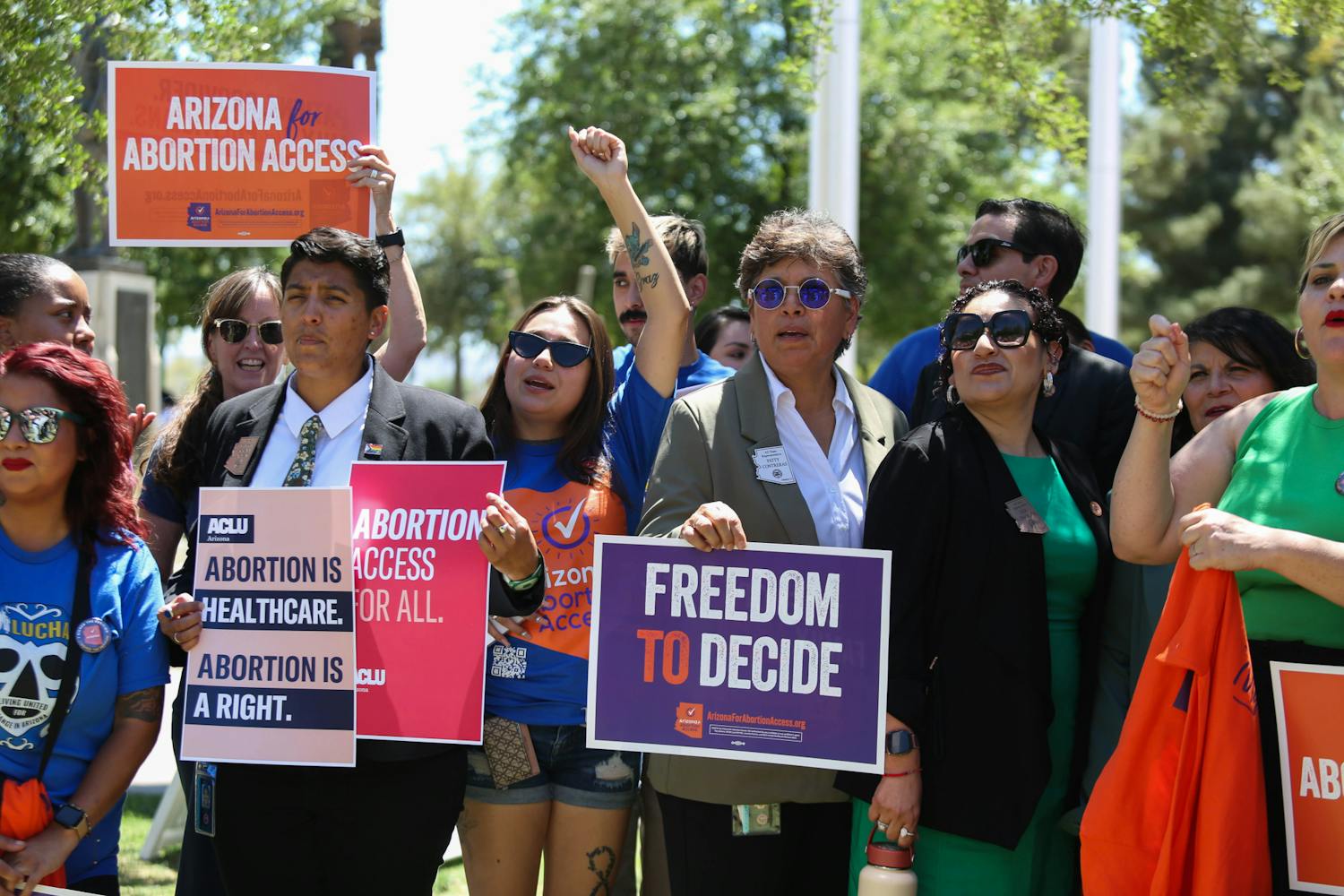Undergraduate Student Government at Tempe introduced a resolution on Tuesday to call on the University to revise the stipends of student workers who are part of USGT and the Associated Students of Arizona State University, the overarching body of student governments at ASU.
Currently, the students in USGT and ASASU are paid a stipend dependent on their positions within the organization. Stipends range from $1,250 per year for senators to $7,000 per year for the president.
When that stipend is divided hourly, pay ranges from roughly $7.80 to $10.25 per hour. For other student workers, the lowest pay-scale rate at the University works out to $10.50 per hour, while the state minimum wage, which state workers are generally exempt from, sits at $11.00 per hour.
Kyle Cloud, a senior majoring in electrical engineering and a senator on the Tempe campus, sponsored Senate Resolution 7. He said in an email he believes it is important that USG and the University abide by the state's minimum wage laws.
"Senate Resolution 7 was not intended as a political commentary on the state minimum wage law, but as an apolitical expression of USGT's general desire to conduct its business consistent with the spirit of the law," Cloud wrote in an email.
The resolution in Tempe was inspired by a similar resolution originally passed through the Undergraduate Student Government Downtown senate. USGD Senate Resolution V passed on Feb. 1 during the senate regular session meeting.
Michelle Ailport, a freshman majoring in journalism and a USGD director, was one of four sponsors of the downtown resolution.
Ailport said in an email that the reason the resolution was introduced was because students deserve to have equitable wages, regardless of the jobs they hold.
"I believe that all students across the board deserve access to equitable wages that are reflective of the time and dedication they put into their positions," Ailport said in an email. "Students, regardless of whether they’re student leaders in USG or formally listed as student workers, are entitled to equal pay for equal work."
With this resolution, USGD said it hopes the University will consider the impact that even a small amount of money can have on students.
"I hope that this sets the precedent for Undergraduate Student Government with university administration going forward," Ailport said in an email. "Something as small as a few extra dollars in our paycheck every other week can mean a world of difference."
However, unlike the USGD resolution, the one in Tempe was tabled as senators felt they could not vote on the legislation at the time.
The main concerns raised were over where the additional money for a pay raise would come from and why the resolution was limited to only USGT members and not all student workers.
Most members were concerned that the burden of additional funds for salaries would fall on the student body. This led Gianni Basso, a sophomore majoring in business law, to revoke his sponsorship of the bill.
"Although I believe student workers should be paid according to scale, I will be rescinding my co-sponsorship on SR7 as I do not feel it is an appropriate use of the student fee," Basso said in an email. "I have advocated this school year for the responsible use of USG funds and increasing wages is not an appropriate use."
Currently, USGT salaries are covered by a portion of the money collected by the student fees, as clarified during the senate meeting by ASASU coordinator Jaime Ingrisano.
While the bill has been tabled, USGT can bring a revised version of it forward for a vote in the future.
Ryan Magel, a junior majoring in political science, said that he was concerned that the resolution focused solely on USG and did not address the wages of all student workers.
"Senate Resolution 7 only addressed the salaries of the staff of USG," Magel said in an email. "The legislation completely ignores the reality of many students at ASU who must work in order to afford to even go to college... By not doing our due diligence and consulting students that this affects, we have failed as an organization."
Correction: A previous version of this article falsely stated that the federal minimum wage is $8.25 per hour instead of $7.25 per hour. The article has been updated to reflect the changes.
Reach the reporter at krquaran@asu.edu and follow @kiaraquaranta on Twitter.
Like The State Press on Facebook and follow @statepress on Twitter.




